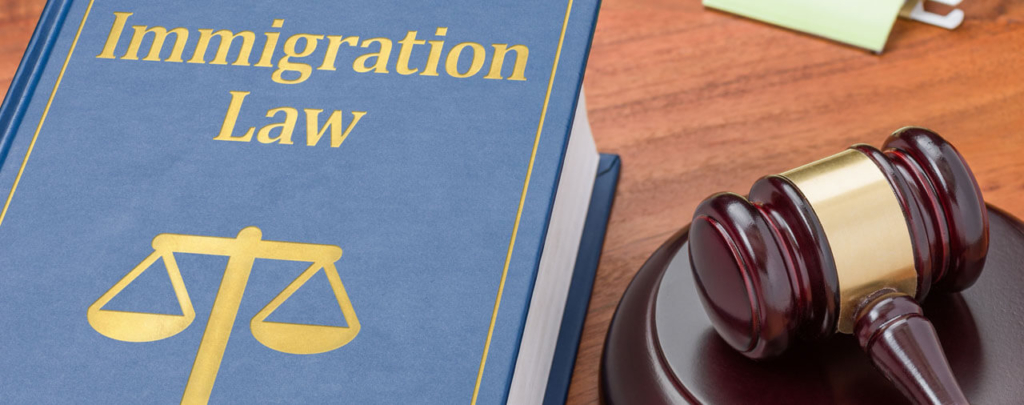- Introduction
- Effective Date
- Temporary Suspension of Entry From Certain Countries
- Exemptions
- Waivers
- Note on Iraq
- Conclusion
(Sep. 26, 2017 Update): The suspension of entry of nationals of six countries under Executive Order 13780 expired on September 24, 2017. On the same day, President Donald Trump issued a proclamation extending a modified set of restrictions against each of the six countries except for Sudan and added three countries not included in the March 6 order. The March 6 order remains relevant for determining whether an individual is subject to the September 24 effective date or the October 18, 2017 effective date of the new proclamation. Please see our full article on the proclamation to learn more [see article].
(June 26, 2017 Update): On June 26, 2017, the Supreme Court of the United States lifted the injunction against section 3(c) of this Executive Order with regard to nationals of the six affected countries who lack a bona fide connection to a person or entity in the United States. The injunction remains in place with regard to individuals from the six affected countries who have such a bona fide connection. Please see our full article to learn more [see article]. The Court will hear the case in October.
On March 15, a Federal Judge from the United States District Court for the District of Hawaii issued a temporary restraining order (TRO) against the implementation of sections 2 and 6 of the Travel Order. The TRO will prevent the suspension of entry provisions in section 2 and the suspension of refugee travel/determination provisions in section 6 from taking effect on March 16, 2017. Please see our short post to learn more [see article]. We will update the site as the litigation continues.
Introduction
On March 6, 2017, President Donald Trump signed an Executive Order titled “Executive Order Protecting the Nation From Foreign Terrorist Entry Into The United States” (“Travel Order”) [PDF version]. This Executive Order revokes and replaces an Executive Order of the same name issued by President Trump on January 27, 2017 [PDF version].
In this article, we will provide a comprehensive overview of the March 6, 2017 Travel Order as it pertains to the suspension of entry for individuals from six countries. We address the Travel Order as it relates to refugees [see article] and to the suspension of the Interview Waiver Program [see article] separately. To learn about the portions of the Travel Order have to do with its purpose and its future changes to immigration procedures, please see our separate article [see article]. We have also posted related article on how the new Travel Order differs from the January 27, 2017 version [see article].
To learn more about the original Executive Order that has now been revoked, please see our legal overview of the original Order [see blog] as well as an analysis and opinion piece on the federal court litigation regarding that Order [see blog].
In addition to the text of the Travel Order itself, we will rely upon a March 6, 2017, Department of Homeland Security (DHS) document regarding the Order titled “Fact Sheet: Protecting the Nation From Foreign Terrorist Entry To The United States” (“DHS Fact Sheet”) [link], as well its FAQ titled “Q&A: Protecting the Nation From Foreign Terrorist Entry To The United States” (“DHS Q&A”) [link]. Please also see a Department of State (DOS) document titled “Executive Order on Visas” (“DOS Announcement”) [link].
Finally, for additional perspective on the new Travel Order, please see our blog with remarks from Secretary of State Rex Tillerson, Attorney General Jeff Sessions, and Secretary of Homeland Security John Kelly [see blog].
Effective Date
Section 14 of the Travel Order makes the “effective date” of the order 12:01 AM, eastern daylight time on March 16, 2017. At that time, all of the provisions of the Travel Order will take effect. Section 13 of the Travel Order states that the original Travel Order, Executive Order 13769 of January 27, 2017, shall be revoked as of the effective date of the new March 6, 2017 Travel Order.
We will continue to make reference to the effective date of the new Travel Order often, so please remember it as we examine the provisions of the Travel Order in this article.
Temporary Suspension of Entry From Certain Countries
In section 2(c) of the Travel Order, President Trump proclaimed under sections 212(f) and 215(a) of the Immigration and Nationality Act (INA) that the “unrestricted entry into the United States” by citizens and nationals of the following six countries would be “detrimental to the interests of the United States”:
Iran;
Libya;
Somalia;
Sudan;
Syria; and
Yemen.
Please see our full articles to learn more about the text and history of INA sections 212(f) [see article] and 215(a) [see article].
President Trump’s citing to section 215(a) is a new feature of the revised Travel Order.
The six affected countries are designated as countries of concern under section 217(a)(12) of the INA (providing for certain restrictions on the use of the Visa Waiver Program) [see blog]. Iraq is also designated as a “country of concern” under section 217(a)(12), and it was included as a barred country in the original Travel Order. To learn about how Iraqi nationals are affected by its exclusion from the new order, please see the relevant section [see section].
Section 2(c) of the Travel Order explains that the temporary suspension will be in effect for 90 days. Q/A18 of the DHS FAQ explains that the Travel Order “applies to both nationals and citizens of the six countries,” but not to persons merely born in one of the six countries if they are not nationals or citizens.
However, the new Travel Order does not apply to all citizens and/or nationals of the affected countries. In this way, the new Travel Order is significantly narrower in scope than the original.
Who the Travel Suspension Applies To
Section 3(a) of the Travel Order explains that it applies to the following nationals of the six affected countries:
Those who are outside the United States on the effective date of the order;
Those who did not have a valid visa at 5:00 PM, eastern standard time on January 27, 2017; and
Those who do not have a valid visa on the effective date of this order.
It is important to understand the second and third bullet points here.
Section 12(c) of the Travel Order provides that no immigrant or nonimmigrant visa that was issued prior to the effective date of the Travel Order shall be revoked under the Travel Order. Under the original Travel Order, the DOS revoked visas of nationals of the then-seven affected countries. Under this Travel Order, an individual outside the United States on the effective date of the order, or inside the United States, will not have his or her visa revoked.
Section 12(d) of the Travel Order states that any visa that was marked revoked or canceled as a result of the original Executive Order 13769 “shall be entitled to a travel document confirming that [he or she] is permitted to travel to the United States and seek entry.” This means that individuals whose visas were revoked or canceled under the original Travel Order are entitled to seek documentation to allow them to travel to the United States. This section also makes clear that a revocation or visa cancelation under the original Travel Order “shall not be the basis of inadmissibility for any future determination about entry or admissibility.”
However, it is important to note, as the DHS does in Q/A7 of the DHS FAQ, that the DOS has “broad authority under section 221(i)” of the INA to revoke visas. This means that the visa of a national of one of the six affected countries may still be revoked for reasons other than the Travel Order. Please see our full article to learn about visa revocations [see article].
Exemptions
Section 3(b) explains that the new Travel Order shall not apply to the following nationals of the six affected countries (quoted):
Any lawful permanent resident of the United States;
Any foreign national who is admitted to or paroled into the United States on or after the effective date of this order;
Any foreign national who has a document other than a visa, valid on the effective date of this order or issued on any date thereafter, that permits him or her to travel to the United States and seek entry or admission, such as an advance parole document;
Any dual national of an affected country when the individual is traveling on a passport issued by a non-designated country;
Any foreign national traveling on a diplomatic or diplomatic-type visa, North Atlantic Treaty Organization visa, C2 visa for travel to the United Nations, or G1, G2, G3, or G4 visa; or
Any foreign national who has been granted asylum; any refugee who has already been admitted to the United States; or any individual who has been granted withholding of removal, advance parole, or protection under the Convention Against Torture.
First, permanent residents are explicitly exempt from the Travel Order. This means that no national of one of the six countries shall be affected provided that he or she maintains her permanent resident status.
Second, we noted in the previous section that those with valid visas issued before or after the effective date of the Travel Order, or those whose visas were marked as “revoked” or “canceled” solely because of the previous Travel Order, are unaffected provided that they have travel documentation. Point two makes clear that individuals who are admitted or paroled into the United States on or after the effective date of the Travel Order are unaffected. Point three extends the protection for those with valid visas to those who have valid documentation “other than a visa” on the effective date of the Travel Order or issued on any date thereafter.
Third, the Travel Order exempts dual nationals of one of the affected countries provided that they are traveling on the passport of a country not listed in the Travel Order. This means, for example, that a national of Iran traveling on a French passport would not be affected by the Travel Order, notwithstanding his or her Iranian nationality. However, if that individual travels on an Iranian passport, he or she will be affected notwithstanding the French nationality. The DHS FAQ at Q/A23, the DHS states that a dual national of one of the designated countries and a non-designated country who is traveling overseas and who does not have a qualifying visa should contact the DOS for information about how the Executive Order applies to visa applicants.
The next point exempts certain diplomatic visa holders and applicants. Please see our full article on the C2 visa category to learn more about one of the exempted visas [see article].
Finally, the new Travel Order exempts individuals who have been granted asylum, have entered the United States as refugees, [see category] or have been granted withholding of removal [see article], advance parole [see article], or protection under the Convention Against Torture [see article]. Section 12(b) of the Travel Order instructs the Secretary of State and the Secretary of Homeland Security to comply with all applicable laws and regulations for allowing aliens to claim a fear of persecution or torture.
Specific Scenarios
The DHS FAQ lists various specific scenarios with respect to the Travel Order.
In Q/A4, the DHS explains that an individual from one of the six countries with a valid single entry visa would not be able to depart the United States and then return unless he or she had other valid documentation with which to seek entry upon the return, because a valid single entry visa will only be good for one entry, notwithstanding the travel order. In Q/A5, the DHS explains that an individual with a valid multiple entry visa would be eligible to travel to and from the United States provided that the visa is valid and the visa-holder is otherwise admissible. The Travel Order would not affect travel in this case.
An individual from one of the six countries who travels abroad after the Travel Order becomes effective and whose visa expires while abroad will be required to procure a new visa or other travel documentation before seeking entry again.
In Q/A24, the DHS explains that international students, exchange visitors, and dependents thereof may continue to travel to the United States provided that they obtained visas by January 27, 2017, or before the effective date of the Travel Order, or and their visas are otherwise valid.
The DHS explains in Q/A28 that the United States Citizenship and Immigration Services (USCIS) will continue to adjudicate applications for naturalization or adjustment of status filed by individuals from the affected countries.
Waivers
The new Travel Order includes specific guidelines for the granting of waivers to persons affected by the Travel Order’s suspension of entry from six countries.
In section (c), President Trump delegates to the Commissioner of the United States Customs and Border Protection (CBP) or the Commissioner’s delegate the authority to, in his or her discretion, “decide on a case-by-case basis to authorize the issuance of a visa to, or to permit the entry of, a foreign national for whom entry is otherwise suspended…” In order for a waiver to be granted, the foreign national must demonstrate that:
Denying entry during the suspension period would cause undue hardship; and
His or her entry would not pose a threat to national security and would otherwise be in the national interest.
The Travel Order explains that, unless otherwise specified by the Secretary of Homeland Security, any such waiver issued by a consular officer as part of the visa issuance process “will be effective both for the issuance of the visa and any subsequent entry on that visa, but will leave all other requirements for admission or entry unchanged.” President Trump then lists nine examples of situations in which a waiver may be appropriate as determined on a case-by-case basis (paraphrased):
1. The foreign national had been previously admitted to the United States for a continuous period of work, study, or other long term activity. He or she is outside the United States on the effective date of the Travel Order and is subject to its suspension of entry, and seeks to reenter the United States to resume that activity. The denial of reentry during the suspension period would impair that activity.
2. The foreign national has established significant contacts with the United States but is outside the United States on the effective date of the Travel Order for work, study, or another lawful activity.
3. The foreign national seeks to enter the United States for significant business or professional obligations, and the denial of reentry during the suspension period would impair such obligations.
4. The foreign national seeks to enter the United States to reside with a close family member (e.g., spouse, child, or parent) and the close family member is a U.S. citizen, permanent resident, or lawfully admitted nonimmigrant. The foreign national must establish that the denial of entry during the suspension period would cause undue hardship.
5. The foreign national is an infant, young child or adoptee, an individual needing urgent medical care, or a person whose entry is otherwise justified based on the specific circumstances of the case.
6. The foreign national has been employed by, or on behalf of, the United States Government (or is a dependent of such employee). Furthermore, the employee can demonstrate that she has provided faithful and valuable service to the United States Government.
7. The foreign national is traveling for purposes related to an international organization designated under the International Organizations Immunities Act (IOIA), 22 U.S.C. 288 et sec. [PDF version], traveling for purposes of conducting meetings or business with the United States Government, or otherwise traveling to conduct business on behalf of an international organization not designated under the IOIA.
8. The foreign national is a landed Canadian immigrant who applies for a visa at a location within Canada.
9. The foreign national is traveling as a United States Government sponsored exchange visitor.
The DHS FAQ at Q/A8 explains that overseas travelers without a valid U.S. visa will have waiver requests adjudicated by the DOS in conjunction with a visa application.
At Q/A11, the DHS FAQ explains that unaccompanied minors covered by the order may be considered for a waiver on a case-by-case basis in accord with the waiver protocols.
Regarding point 8 on the above list, the DHS explains at Q/A29 that landed immigrants of Canada who are affected by the Travel Order may apply for a visa and coordinated a waiver at a location within Canada.
Note on Iraq
Notably, Iraq, which had been included in the original Executive Order, is not included in the new Presidential Proclamation. In section 1(g) of the Travel Order, President Trump lists various reasons why he omitted Iraq from the new Travel Order. However, despite the fact that the new Travel Order does not temporarily suspend the entry or issuance of visas to Iraqi nationals, President Trump states that “[d]ecisions about issuance of visas or granting admission to Iraqi nationals should be subjected to additional scrutiny.”
In section 4 of the Travel Order, President Trump submits that such review may include consultation with the Department of Defense (DOD). Officials will seek to determine whether the applicant has connections with ISIS or other terrorist organizations or with a territory that “has been under the dominant influence of ISIS.” Adjudicators will also consider “any other information bearing on whether the applicant may be a threat to commit acts of terrorism or otherwise threaten the national security or public safety of the United States.”
Conclusion
The new Travel Order is significantly narrower in scope than the original Travel Order. Those with valid visas as of January 27, 2017, and those who obtain visas as of the effective date of the new Travel Order, will be permitted to use those visas. Individuals who may be affected by the Travel Order should consult with an experienced immigration attorney. An attorney will be able to offer guidance if the individual’s visa was revoked or cancelled under the original Travel Order, to assess an individual’s current situation and the effect the Travel Order may have on him or her, and to determine whether an individual abroad who is affected by the Travel Order may have grounds to seek a waiver.
The Travel Order may be subject to litigation and other changes. Please follow our site for the most up-to-date information.





